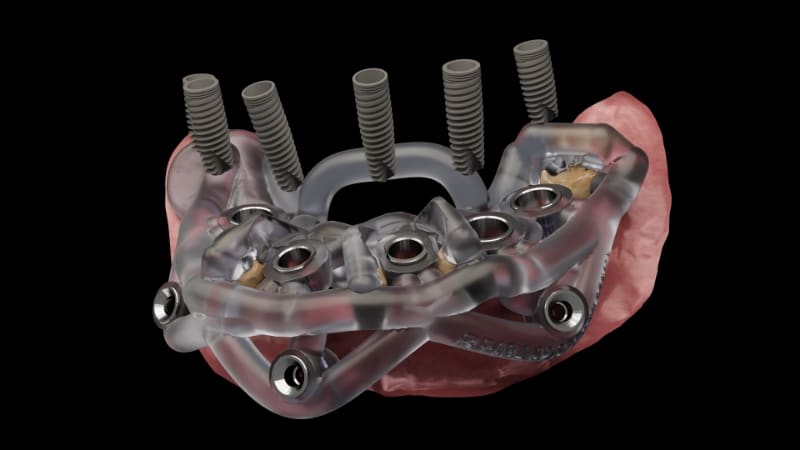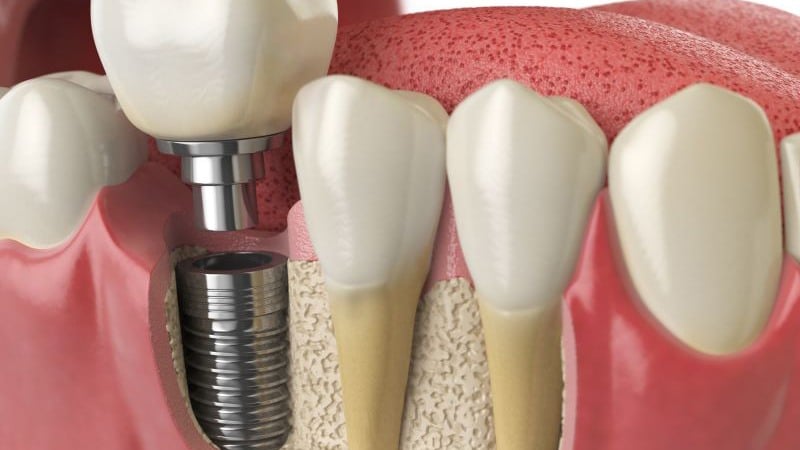Dental Implant Failure & Salvage – Boston, MA
Expert Help for Your Renewed Smile
Dental implants are successful in more than 95% of cases, so there is no need to be overly worried that something will go wrong with your new teeth. However, it still must be acknowledged that, in rare cases, dental implant failure in Boston can occur. If you ever suspect that is happening to you, contact our dental team right away. We are ready to assess the situation and provide expert help for your renewed smile. Our goal is to address the problem in the most efficient and conservative way possible.
Why Do Dental Implants Fail?

The most common culprit behind dental implant failure is an infection known as peri-implantitis. When harmful bacteria sneak beneath the gumline, they can attack the tissue around an implant. Eventually, this condition can become so severe that an implant starts to lose its base of support. In some cases, missteps in oral hygiene are a major contributor to the development of peri-implantitis.
Other possible reasons for dental implant failure include:
- Physical trauma. This may be caused by severe teeth grinding or a sudden accident.
- Medical conditions. Uncontrolled diabetes, certain types of cancer, and other health conditions can negatively affect dental implants.
- Failed osseointegration. In some cases, a dental implant does not successfully bond with the surrounding bone tissue.
Symptoms of a Failed Dental Implant

Dental implant failure can occur at any time, whether it is days, months, or even decades after the initial placement procedure. Therefore, you should always monitor your oral health and seek treatment at the first sign of a problem.
Here are some signs and symptoms that could indicate trouble:
- After you heal from dental implant surgery, you should enjoy pain-free function from your new teeth. Severe or unusual discomfort deserves professional attention.
- Difficulty chewing. Once you get used to your implants, it should be easy for you to eat a wide variety of foods. Challenges in this area can be a big red flag.
- Signs of infection. Pus, swelling, redness, and gum recession could all point to peri-implantitis.
- An implant feels loose. This could be a problem with an implant itself or the restoration on top of it. Either way, it would be wise to visit us for an assessment.
How Dental Implant Salvage Works

It is important to note that dental problems only tend to get worse over time. If you unnecessarily delay treatment for a problem with one of your implants, you could end up needing extensive (and expensive) care.
When you arrive for your appointment, we will learn about your symptoms, perform a visual examination of your mouth, and use advanced imaging equipment to look beneath your gumline. Thereafter, we can propose a treatment plan. You might need something relatively simple, such as a new restoration or a course of antibiotics. In other cases, more complex care is necessary. We might need to completely remove a failing implant. Later, after a recovery period and additional restorative services, you might be eligible to receive a new implant.
All-on-4 vs. Traditional Dental Implants

- Number of implants. Traditional implant dentures often require between six and eight implant posts per arch, whereas All-on-4 uses only four implants, making it a less invasive procedure overall.
- Timeline. The overall treatment timeline with All-on-4 is usually shorter than what you would expect with traditional implants.
- Surgical procedures. All-on-4 typically involves just one surgical procedure, whereas traditional implants may require two or more.
- In some cases, using more implants via traditional treatment results in a sturdier final prosthetic.
- All-on-4 is exclusively for full-arch replacement. Traditional implants can replace any number of lost teeth.
